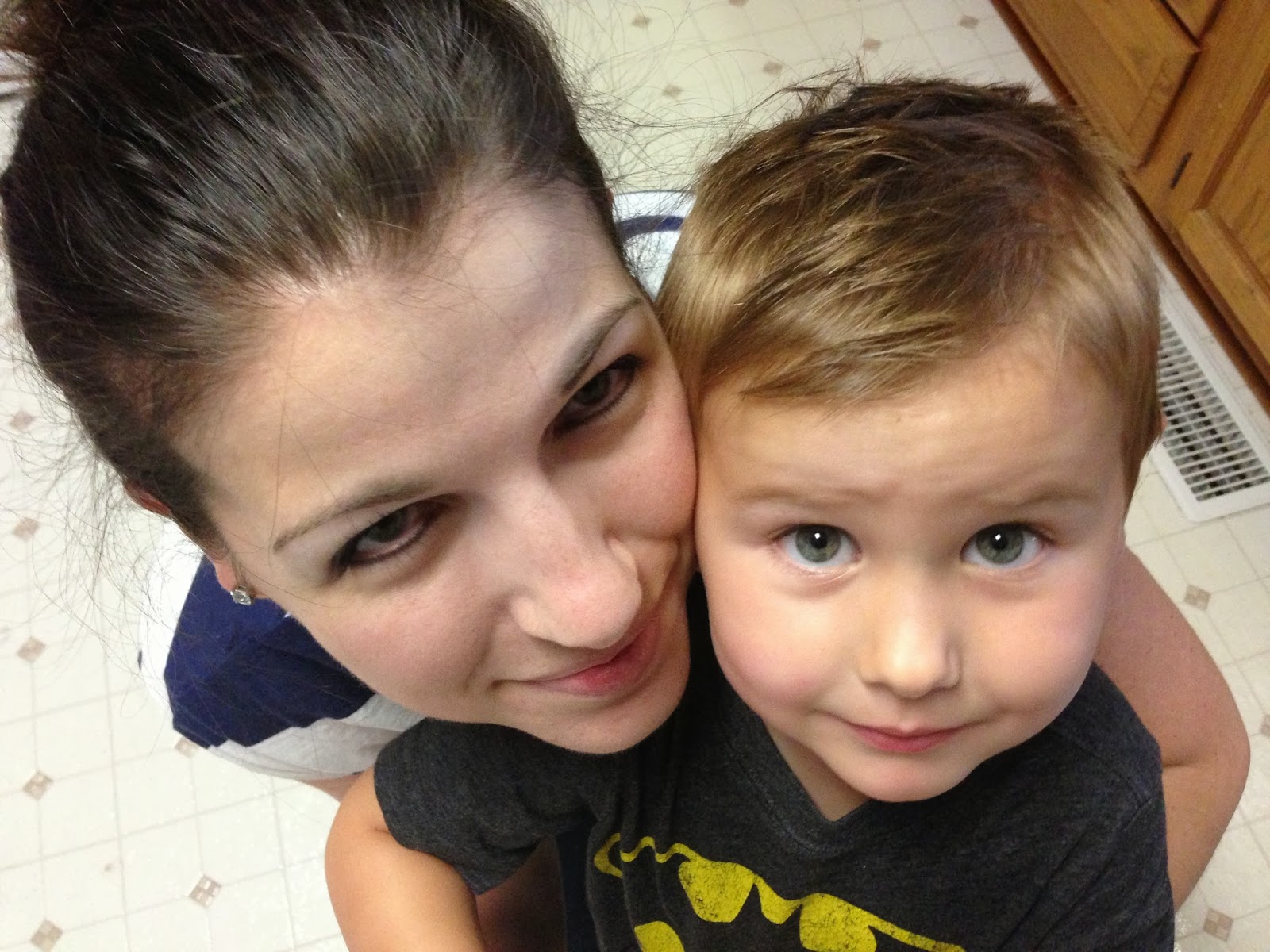Here at Day by Day Mormon, we are going to jumpstart the holiday season with a series of gratitude posts. We have asked several friends to write about particular things for which they are thankful. Living in the United States, we have so much. I'm sure many of you have seen this Facebook-floating picture.
There are things we take for granted every day that many will never have. When we have so much, sometimes it is hard to recognize the source of our blessings as anything other than our own good fortune and hard work. But we believe that we have a loving Father who has chosen to give us all that we have. Not just all that we enjoy- all that we have. If we neglect to acknowledge His gifts, we will lose out on more than just faith. We will lose out on the opportunity to expand our potential.
One of the most difficult things for me to be grateful for is tribulation. How can you be happy for things that make your life miserable? Not just the tear-wrenching, life-changing moments, but also the day to day trials we all face. Like getting a flat tire when you are already late for a meeting. Or sitting in traffic with cranky children for an hour and a half because you left the museum too close to rush hour. Or being at home in an empty house, wondering if you will ever not be alone. Or learning your child has a health condition that he will have to deal with his entire life. Or receiving that stomach-dropping phone call that a loved one has just passed away (which I just did). For many of us, I fear our innate human tendency is to sweep all unpleasantries under the rug and deal with them at some indefinite future date. Sometimes that works- for a time. But almost always these types of things find their way surfacing- often at the most inopportune moment.

In the scriptures, we learn there is a better way of dealing with trials. A way to work through them and come out refined on the other side. We are taught to rejoice in our hard comings.
Wherein ye greatly rejoice... in heaviness through manifold temptations:
That the trial of your faith...might be found unto praise and honour and glory at the appearing of Jesus Christ. 1
For a long time, I suffered with how to appreciate difficulties in life. I propose three ways that can improve our gratitude for things we usually wish we could do without.
First, we can learn to cope with and understand our trials once we realize,
For it must needs be, that there is an opposition in all things. If not so...righteousness could not be brought to pass, neither wickedness, neither holiness nor misery, neither good nor bad. 2
The importance of everything having its equal and opposite makes logical sense. I think that a large part of misery has to do with what we would rather our situation be instead. If we can somehow come to expect the occasional (or sometimes more often) disappointment, we can see it for what it is- a needed, fleeting moment in time, that will at some point reach an end- instead of as strictly unwanted happenstance.
Second, trials serve to prove us worthy to a loving Father in heaven. Sometimes, we are just unable to learn another way. Or perhaps, the lessons that we need the most are the ones where we have to suffer first to truly understand. C.S. Lewis said,
We can ignore even pleasure. But pain insists on being attended to. God whispers to us in our pleasures, speaks in our conscience, but shouts in our pains: it is His megaphone to rouse a deaf world. 3
I recall the story of Job, where he has lost everything. Every person, every possession, every comfort, has been stripped from him. Even in such a state, instead of being spiteful or vengeful, he states, "When he hath tried me, I shall come forth as gold."4
In his 2008 General Conference Talk, Church Apostle Quentin L. Cook powerfully shared,
This life is not always easy, nor was it meant to be; it is a time of testing and proving... Elder Harold B. Lee taught, "Sometimes, the things that are the best for us and the things that bring eternal rewards seem at the moment to be the most bitter, and the things forbidden are ofttimes the things which seem to be the more desirable. 5
 Third, my final and personal suggestion, is to see the tribulation from a future perspective. Sometimes I find it comforting just to realize that horrible feelings and experiences cannot simply last forever. Church founder and first Church President, Joseph Smith, was wrongly being incarcerated in Liberty Jail, Missouri, for months. He cried to the Lord in prayer,
Third, my final and personal suggestion, is to see the tribulation from a future perspective. Sometimes I find it comforting just to realize that horrible feelings and experiences cannot simply last forever. Church founder and first Church President, Joseph Smith, was wrongly being incarcerated in Liberty Jail, Missouri, for months. He cried to the Lord in prayer,O God, where art thou?
[He was answered]My son, peace be unto thy soul; thine adversity and thine afflictions shall be but a small moment;
And then, if thou endure it well, God shall exalt thee on high; thou shalt triumph over all thy foes. 6
Often, I try to think of what I could be learning or developing as a result of a particular circumstance. On occasion, neither of those seems to work. I have had times where the only comfort I can gain is in thinking that the knowledge of such pain and suffering will help me empathize with someone else later in time. It is an oddly comforting thought- that through my misery, I might be better able to mourn with and comfort others. But for some reason it helps.
The obvious correlation is that there is one being who suffered all for us. Jesus Christ experienced every sorrow, every pain, every doubt, every fear. He atoned for our sins and died for us not only so that we can overcome our sin and be exalted, but also so that He can understand our suffering. He is the one person who always knows exactly what we are going through, because He deliberately opted to suffer through it Himself. I know this to be true.
Though they are not always pleasant, I am grateful for all experiences I have been given. They have and will continue to work together to mold me into the person that I am and who I am meant to be. The more we can realize the eternal nature of our experiences, good or bad, the better able we are to align our will with God's. I hope we can all remember that long past the holiday cheer that comes through Christmas carols and turkeys and sparkling lights. It is one thing that we can do to warm our hearts the whole year through.
Published by Jen
1. 1 Peter 1:6-7
2. 2 Nephi 2:11
3. Lewis, C.S. The Problem of Pain. New York: Macmillan, 1944. Print.
4. Job 23:10
5. Quentin L. Cook. "Hope Ya Know, We Had a Hard Time." October 2008 General Conference.
6. D&C 121:1, 7-8







.PNG)
























